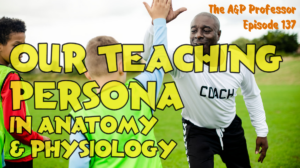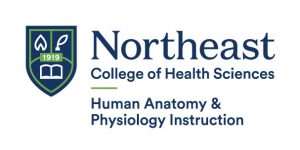In Episode 137, host Kevin Patton explores the significance of playfulness, transparency, and authenticity in the teaching persona. Drawing from personal experiences training animals, Kevin explains how play is integral to learning, highlighting the importance of incorporating a sense of fun and embracing failures in the classroom. He also emphasizes the value of transparency by sharing our own mistakes and weaknesses, asserting that being open about flaws fosters authenticity and builds trust with students. By acknowledging vulnerabilities and demonstrating a genuine willingness to learn, educators can create a supportive and engaging learning environment. This thought-provoking discussion reminds us of the power of play and authenticity in effective teaching.
- 00:00 | Introduction
- 00:47 | Our Teaching Persona
- 14:23 | Taking Responsibility
- 22:03 | Gestures Impart Meaning
- 32:34 | Playing Around
- 42:54 | Authenticity
- 47:46 | Staying Connected
★ If you cannot see or activate the audio player, go to: theAPprofessor.org/podcast-episode-137.html
🏅 Apply for your credential (badge/certificate) for listening to this episode: theAPprofessor.org/podcast-episode-137.html/#badge
⭐⭐⭐⭐ Please rate & review this podcast so that others can decide whether to give it a try: RateThisPodcast.com/theAPprofessor
❓ Please take the anonymous survey: theAPprofessor.org/survey
☝️ Questions & Feedback: 1-833-LION-DEN (1-833-546-6336)
✔️ Follow The A&P Professor on Twitter, Facebook, Blogger, Revue, Tumblr, or Instagram! @theAPprofessor
📰 Get the once-or-twice-weekly TAPP Science & Education Updates theAPprofessor.org/updates
To be playful and serious at the same time is possible, and it defines the ideal mental condition. (John Dewey)
Our Teaching Persona
13.5 minutes
Kevin Patton discusses the concept of the teaching persona, emphasizing the importance of authenticity and genuine connection with students. He highlights the significance of being true to oneself while adapting and enhancing certain aspects of personality to create an engaging and effective teaching persona.
★ Storytelling is the Heart of Teaching A&P | TAPP 12 (where Kevin talks about the "storytelling persona") theAPprofessor.org/podcast-episode-12.html
★ Playful & Serious Is the Perfect Combo for A&P | TAPP 13(where Kevin talks about benefits of having a playful persona when teaching) theAPprofessor.org/podcast-episode-13.html
★ End-of-Term Reviews Help Keep Your Course on Track | TAPP 17 (the first introduction of course debriefing in this podcast) theAPprofessor.org/podcast-episode-13.html
★ The Inclusive Anatomy & Physiology Course | Part 2 | TAPP 109 (has a segment on an inclusive classroom demeanor) theAPprofessor.org/podcast-episode-109.html
Please rate & review The A&P Professor—it helps others decide whether to give us a try! 😁
★ RateThisPodcast.com/theAPprofessor
Taking Responsibility
7.5 minutes
Kevin explores the idea of the teaching persona further, emphasizing the need for flexibility and adaptability, while challenging how rigorously we should expect students to be as responsible as we imagine they should be. He discusses the importance of being responsive to students' needs and finding a balance between personal authenticity and professional expectations.
★ Should We Extend Deadlines? | Models & Color Codes | TAPP 112 (addresses some aspects of student responsibility) theapprofessor.org/podcast-episode-112.html
★ The Inclusive Anatomy & Physiology Course | Part 1 | TAPP 108 theAPprofessor.org/podcast-episode-108.html
Gestures Impart Meaning
10.5 minutes
Explore the captivating world of playfulness and the power of gestures in education with Kevin Patton. Discover how incorporating playful elements and purposeful gestures can ignite student engagement, facilitate comprehension, and foster a vibrant learning environment that encourages active participation and enhances communication between teachers and students. Unleash the transformative potential of play and gestures in your teaching practice.
★ 1 Change to How You Speak Makes What You Say 20 Percent More Memorable, Research Shows (Experiments prove that we 'listen' with our eyes as well as our ears, according to this article from Inc.) AandP.info/n7v
★ How hand gestures alter the perception of your speech (Research has found that words are more accurately heard when accompanied by hand gestures, according to this article from Big Think) AandP.info/nmn
★ Gesture (more than you care to know, probably, from the Glossary of Multimodal Terms) AandP.info/5zn
★ TED Talks (look for gestures among the most popular TED Talks on YouTube) youtu.be/iG9CE55wbtY
Playing Around
10.5 minutes
Kevin reflects on an article about the value of play in university learning and draws connections to animal training techniques. He emphasizes the importance of recognizing the challenging aspects of learning and the need for a playful and supportive atmosphere. Additionally, they discuss the significance of trust in the teacher-student relationship and the detrimental effects of a demanding and non-playful demeanor.
★ Reimagining university learning with play: restoring trust in university learning is child’s play (A utilitarian approach to undergraduate education is leading to disenchantment among students and society. It is time to put ‘play’ at the heart of learning, says Colm O’Shea in this essay) AandP.info/7bd
★ Playful & Serious Is the Perfect Combo for A&P (where Kevin talks about benefits of having a playful persona when teaching) theAPprofessor.org/podcast-episode-13.html
★ Micro-Credentials & Gamification in the A&P Course | Brown & Black Skin | Refresher Tests | TAPP 87 theAPprofessor.org/podcast-episode-87.html
★ The Inclusive Anatomy & Physiology Course | Part 2 | TAPP 109 (The seg ment Inclusive Classroom Demeanor suggests that "A playful class atmosphere is—by its very nature —an inclusive classroom atmosphere. The more flexible and playful our course is, the more inclusive it can become.") theAPprofessor.org/podcast-episode-109.html
★ Are You a Warm Demander? | TAPP 115 (episode contrasting "Warm Demander" and "Toxic Rigor") theAPprofessor.org/podcast-espisode-115.html
Authenticity
5 minutes
Join Kevin Patton as he discusses the importance of acknowledging and embracing our mistakes as educators. Learn how transparency and sharing personal weaknesses can enhance authenticity, build trust, and promote a supportive learning environment where students feel comfortable making their own mistakes and growing from them.
★ Research: Why Leaders Should Be Open About Their Flaws (An article from the Harvard Business Review in which researchers asked leaders in various organizations to tell how they would introduce themselves to prospective workers. Most leaders only revealed their strengths. This is a mistake. Revealing personal foibles — as long as they are not serious personal shortcomings — makes leaders come across as authentic and generates good will and trust.) AandP.info/mt7
★ Making Mistakes Teaching Anatomy & Physiology | Episode 63 theAPprofessor.org/podcast-episode-63.html
★ The Case for Transparency | Episode 51 theAPprofessor.org/podcast-episode-51.html
People
Production: Aileen Park (announcer), Andrés Rodriguez (theme composer, recording artist), Rev.com team (transcription), Karen Turner (Executive Editor), Kevin Patton (writer, editor, producer, host).
Not People
Robotic (AI) audio processing is done by Auphonic.com and the content, spelling, grammar, style, etc., of these episode notes are assisted by various bots.
If the hyperlinks here are not active, go to TAPPradio.org to find the episode page.
★ More details at the episode page: theAPprofessor.org/podcast-episode-137.html
★ Transcript available in the transcript box: theAPprofessor.org/podcast-episode-137.html
★ Need help accessing resources locked behind a paywall? Check out this advice from Episode 32 to get what you need! my-ap.us/paywall
Take The A&P Professor experience to the next level!
★ theAPprofessor.org/community
Earn cash by referring other A&P faculty to this podcast:
Tools & Resources
★ TAPP Science & Education Updates: theAPprofessor.org/updates
★ Amazon: amzn.to/2r6Qa3J
★ Text Expander: theapprofessor.org/textexpander
★ Rev.com (transcription): try.rev.com/Cw2nZ
★ Auphonic (audio processing): AandP.info/auphonic
★ Snagit & Camtasia: techsmith.pxf.io/9MkPW
★ JotForm (build forms for free): theAPprofessor.org/jotform
★ Mobile Pixels (laptop monitor extender): thttps://aandp.info/XtraMonitor
★ QuillBot (writing tools): theAPprofessor.org/quillbot
★ The A&P Professor Logo Items: https://www.teepublic.com/stores/the-a-p-professor
Follow The A&P Professor on Twitter, Facebook, Mastodon, Reddit, TikTok,LinkedIn, Blogger, Revue, Tumblr, or Instagram @theAPprofessor
The A&P Professor® and Lion Den® are registered trademarks of Lion Den Inc. (Kevin Patton)
As an Amazon Associate I earn from qualifying purchases. I may be compensated for links to sponsors and certain other links.
Click here to listen to this episode—or access the detailed notes and transcript.





